Worksheets for Ages 3-6 - Page 83
1975 filtered results
-
From - To
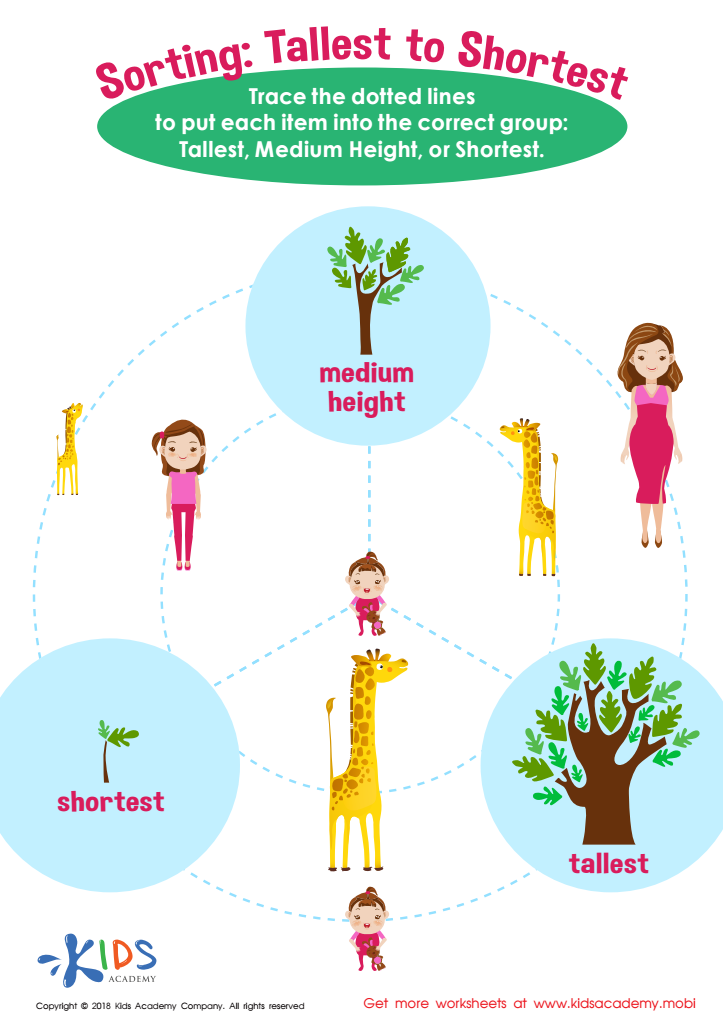

Sorting: Tallest to Shortest Worksheet
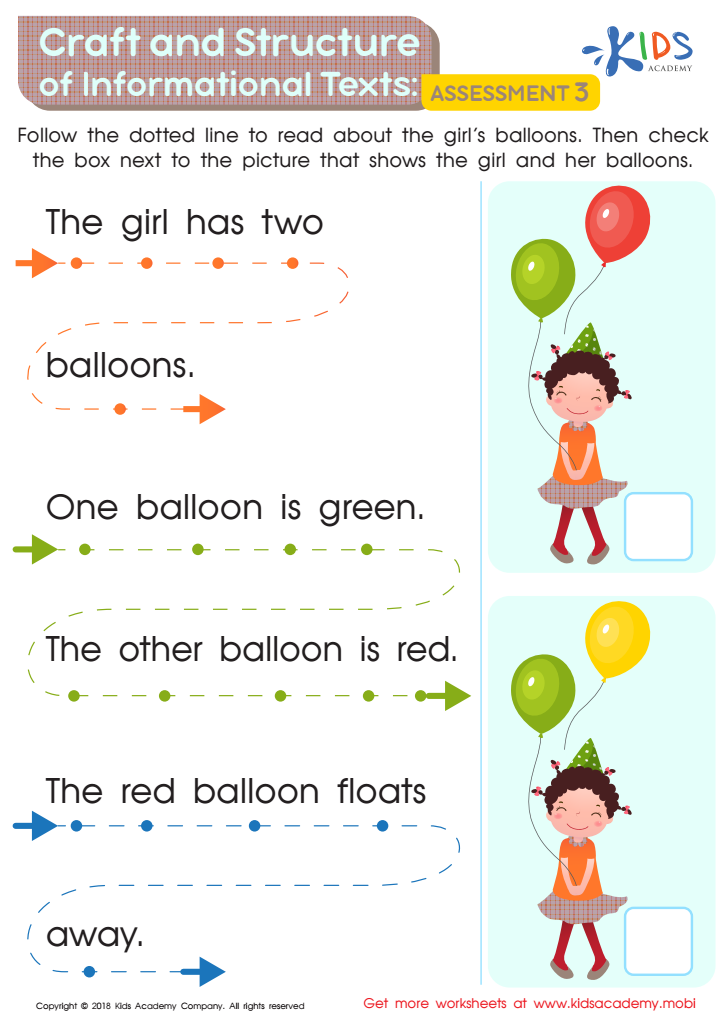

Craft and Structure of Informational Texts: Assessment 3 Worksheet
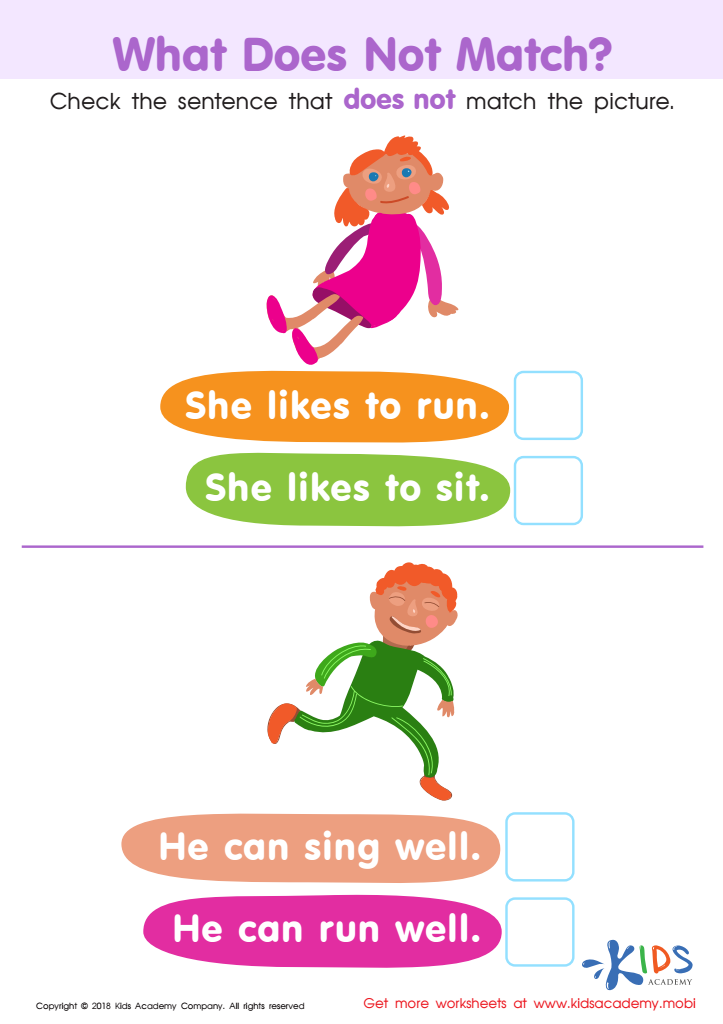

What Does Not Match? Worksheet
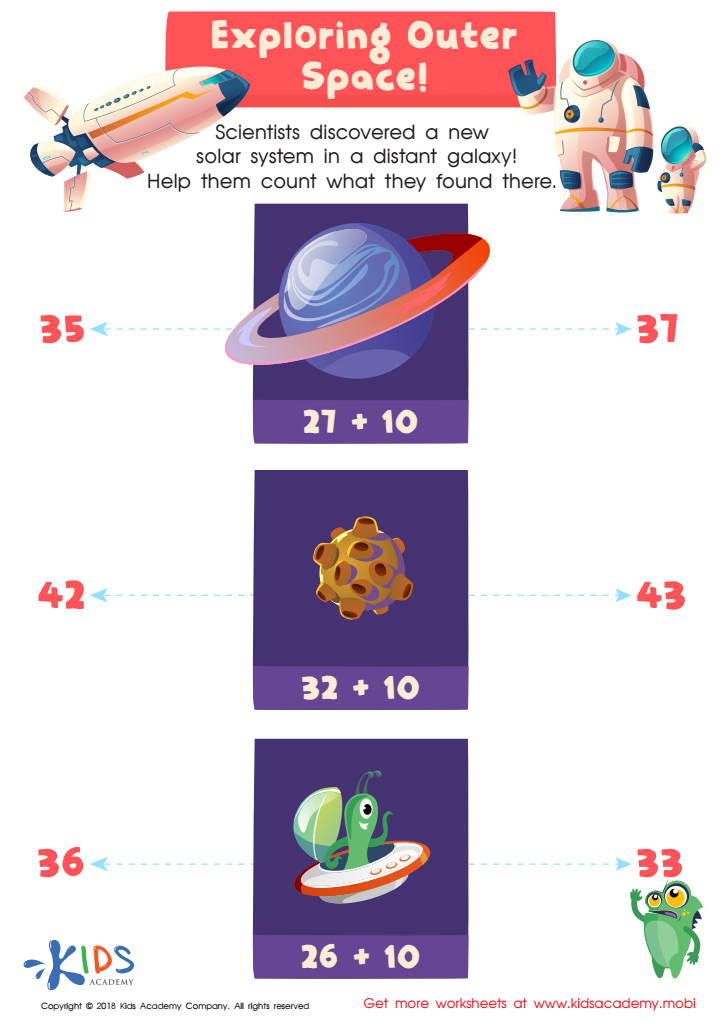

Exploring Outer Space Worksheet
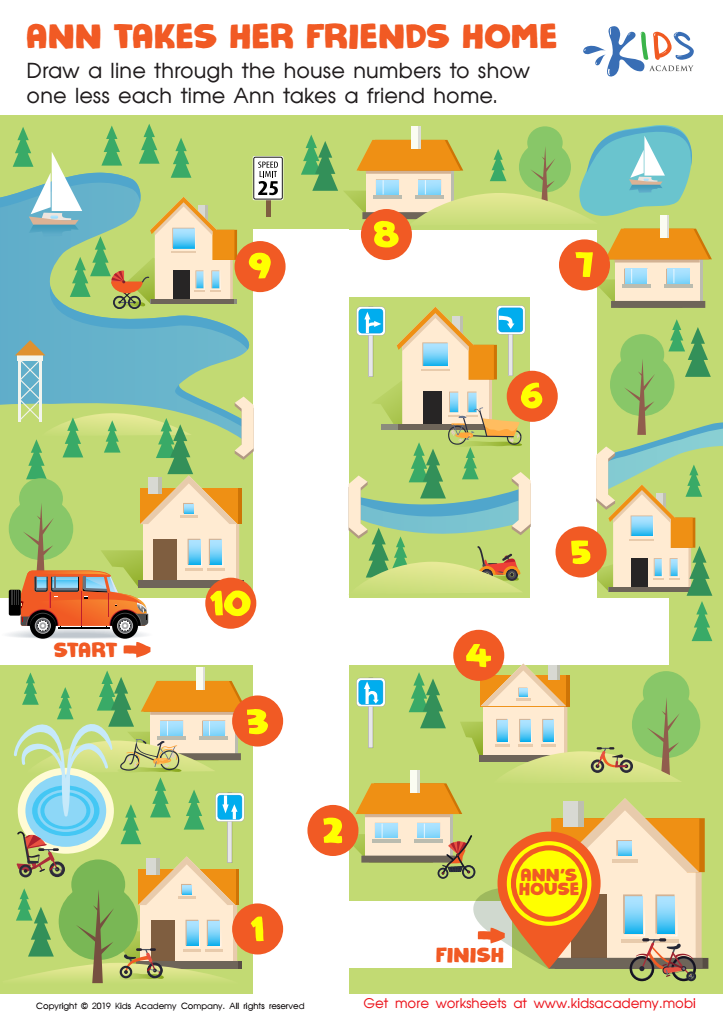

Ann Takes her Friends Home Worksheet
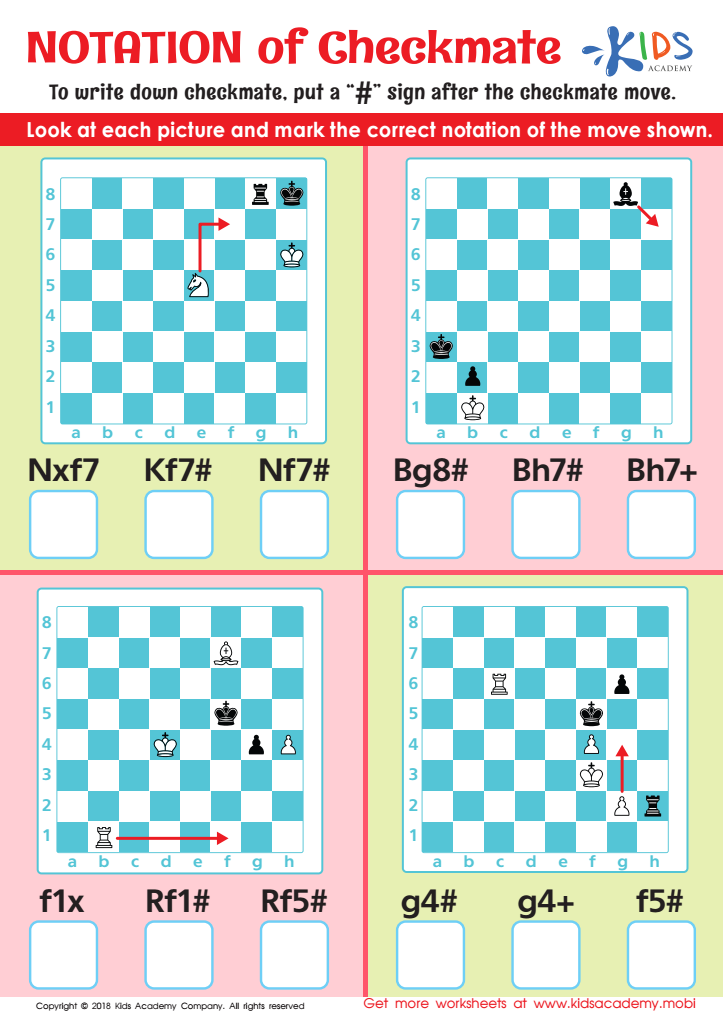

Notation of Checkmate Worksheet
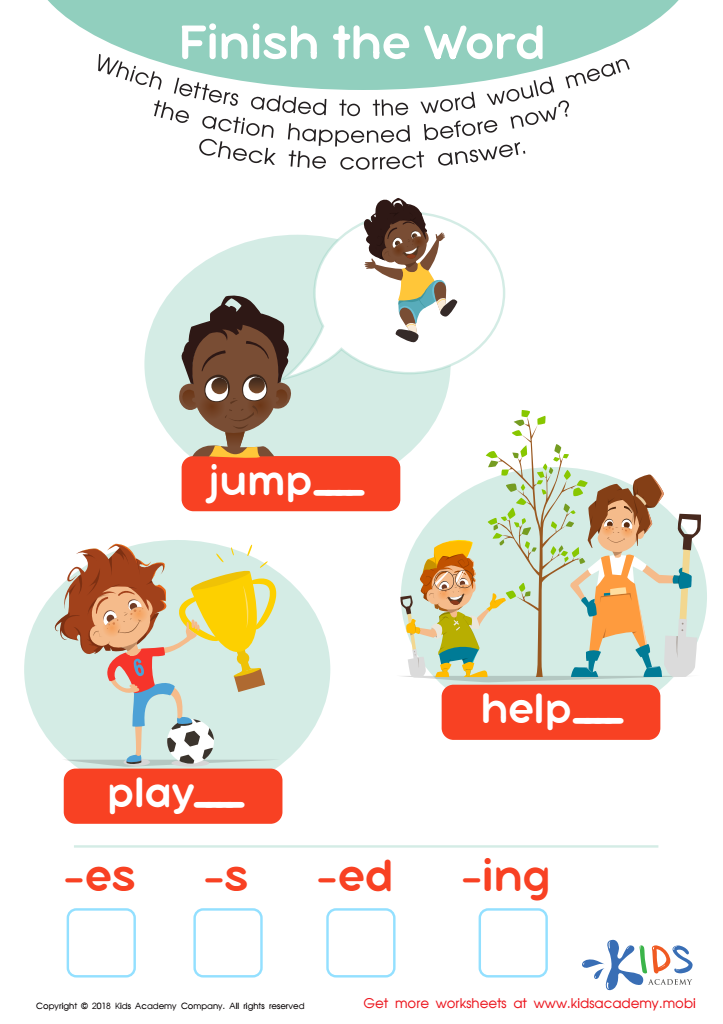

Finish the Word Worksheet
Parents and teachers should care deeply about the development of children aged 3-6 due to the critical nature of these early years in shaping their overall growth. At this stage, children experience rapid physical, cognitive, social, and emotional development, which lays the foundation for their future learning and well-being.
Physically, children develop motor skills and coordination, essential for everyday tasks and healthy lifestyle habits. Cognitively, they begin to master basic concepts such as numbers, letters, and shapes, which are foundational for later academic success. Early literacy activities, like reading aloud, foster language skills and imagination, bolstering future communication abilities and academic achievement.
Social and emotional development is equally crucial. Interactive play and guided activities teach children important social skills such as sharing, empathy, and cooperation, while helping to build self-confidence and independence. Emotional intelligence developed during these years aids in managing feelings and forming healthy relationships in the future.
Moreover, supportive, nurturing environments provided by parents and teachers during these formative years can significantly influence a child's attitudes toward learning and self-worth. Investing in high-quality early childhood education and attentive parenting paves the way for well-rounded, resilient individuals, making attention to the needs and growth of children aged 3-6 essential.

 Assign to My Students
Assign to My Students




.jpg)
















